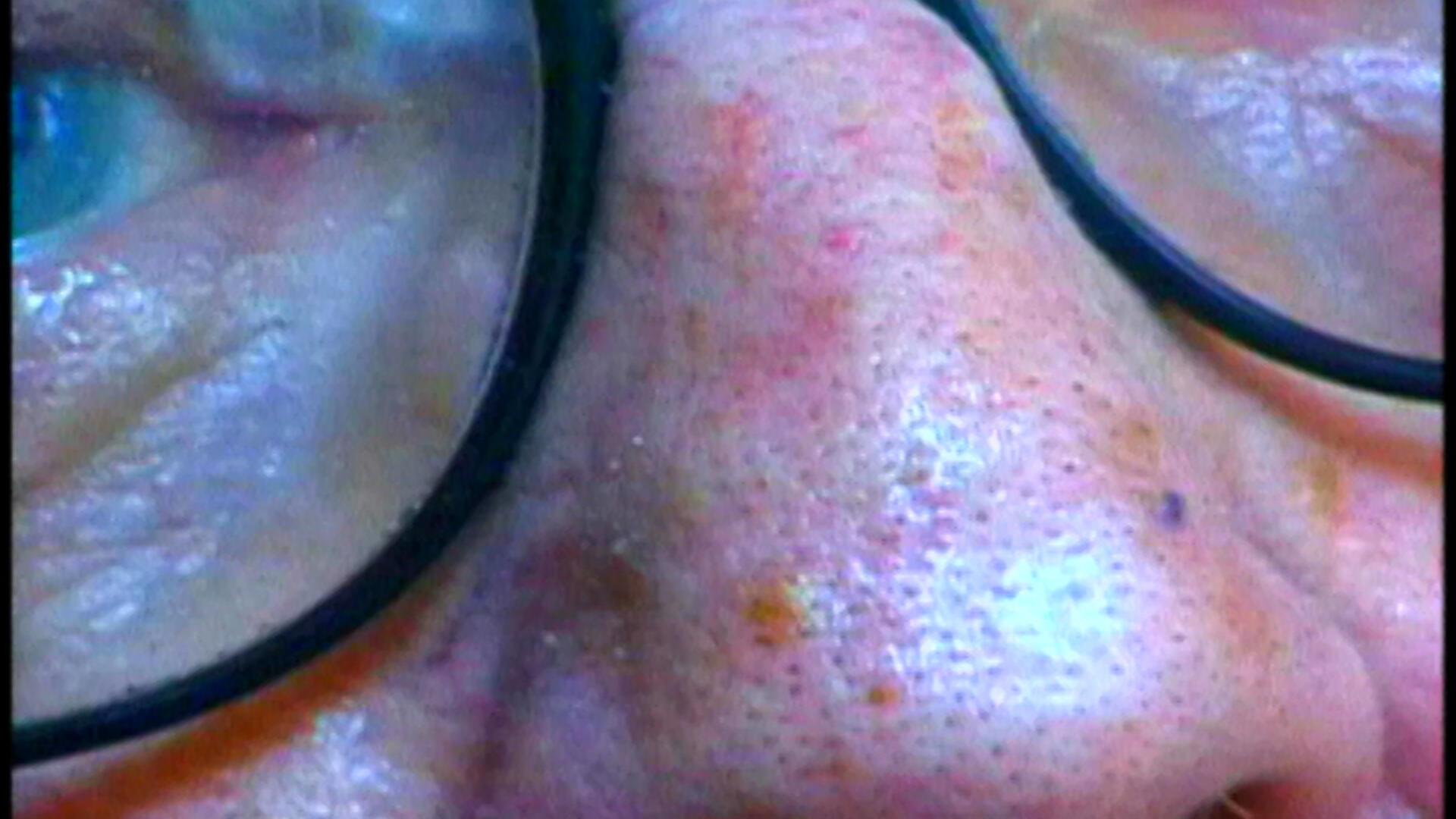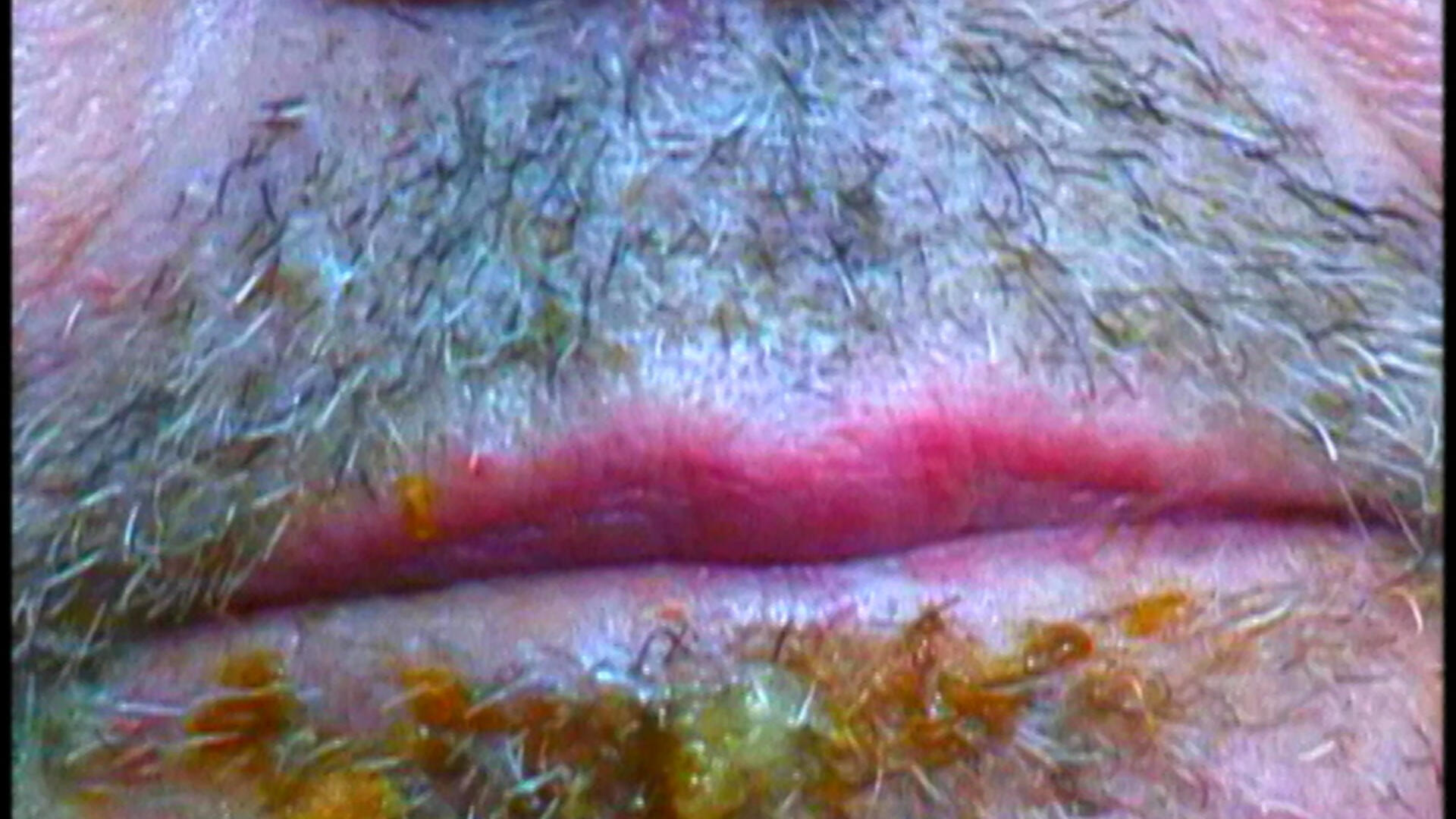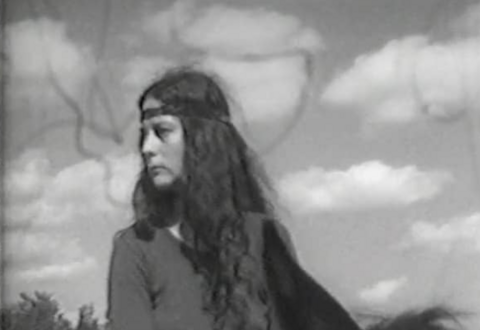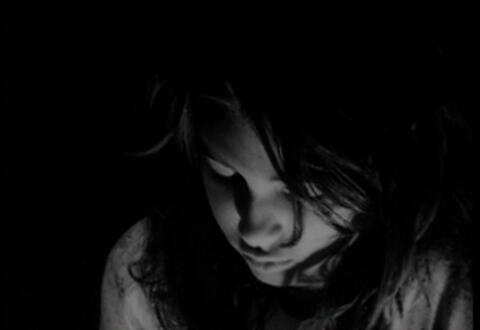A Short Lesson
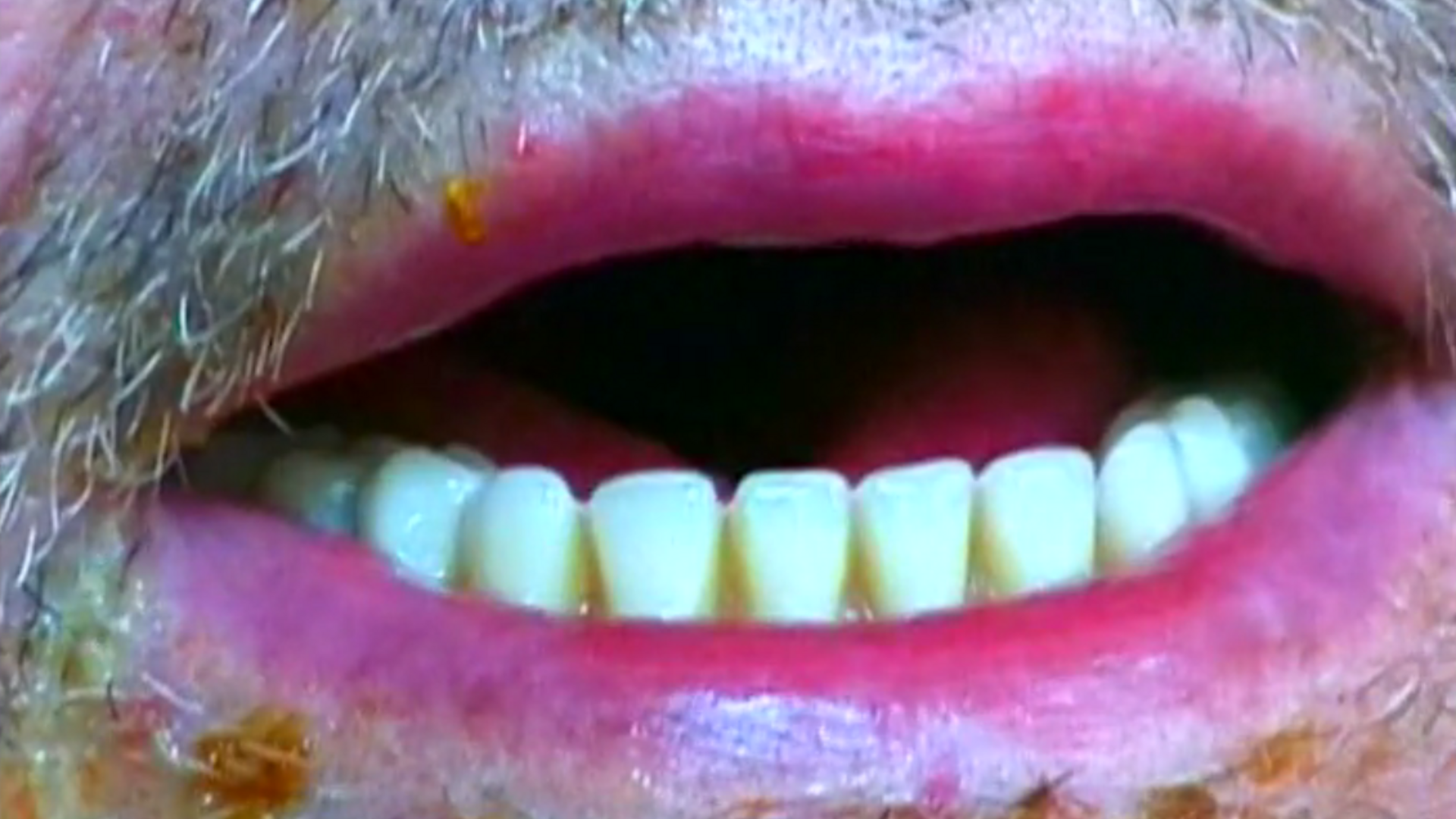
In A Short Lesson, a one-minute film, two sound sequences in off are superimposed on the picture: first of all a dialogue from Sullivan's Travels, in which a film director hears himself being reproached for his naïveté as well as for a certain voyeurism in wanting to make a film on "the poor". There follows an anecdote concerning James Agee, the well known film critic: drunk most of the time, he fell asleep in the cinema and wrote his articles for Time Magazine on the basis of summaries provided by a friend and colleague. During this time, the camera parades its pitiless eye on the face of an old man, examines the roots of his (sparse) hair, the (greasy) lens of his spectacles, his nose studded with blackheads, the lips edged with pimples, before coming to a stop on the mouth. Detached from their natural context, these organs acquire a special status: they become individual entities, seem to possess a life of their own and bear witness by their appearance to their own decrepitude. Forced as he is to thus scrutinize this ravaged face, the spectator quickly experiences an all too understandable uneasiness. This unease, premeditated by Cumming, echoes the conversation at the beginning of the film and also seems like a riposte at those who accuse him of voyeurism. Scathingly ironic, this "short lesson" should be taken as the beginning of a discussion on the responsibility of the filmmaker, as well as on the rôle of the spectator and the critic.
Sophie Guyot, Visions du réel, 2002 (translation: Angela Bennet)
Credits
Technical information
Documentation
Poverty, Cinema, Face






